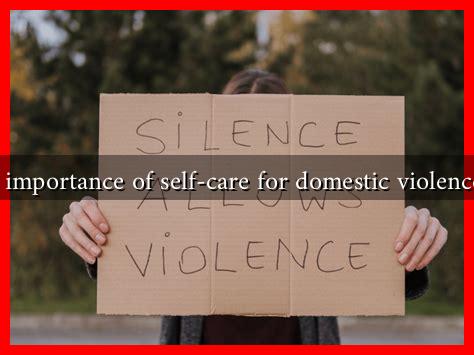-
Table of Contents
The Importance of Self-Care for Domestic Violence Survivors
Domestic violence is a pervasive issue that affects millions of individuals worldwide, leaving deep emotional and physical scars. Survivors often face a long and challenging journey toward healing, and self-care plays a crucial role in this process. This article explores the importance of self-care for domestic violence survivors, highlighting its benefits, practical strategies, and the need for a supportive environment.
Understanding Self-Care
Self-care refers to the intentional actions individuals take to maintain and improve their physical, mental, and emotional well-being. For domestic violence survivors, self-care is not just a luxury; it is a vital component of recovery. It empowers them to reclaim their lives and fosters resilience in the face of trauma.
The Benefits of Self-Care for Survivors
Engaging in self-care can yield numerous benefits for survivors of domestic violence, including:
- Emotional Healing: Self-care practices can help survivors process their emotions, reducing feelings of anxiety, depression, and isolation.
- Physical Health: Regular self-care activities, such as exercise and proper nutrition, can improve physical health, which is often neglected during abusive relationships.
- Empowerment: Taking control of one’s self-care fosters a sense of agency and empowerment, helping survivors rebuild their self-esteem.
- Stress Reduction: Engaging in relaxation techniques, such as meditation or yoga, can significantly reduce stress levels and promote mental clarity.
- Building Support Networks: Self-care can encourage survivors to connect with others, fostering relationships that provide emotional support and understanding.
Practical Self-Care Strategies
Implementing self-care can be challenging for survivors, especially if they are still navigating the aftermath of abuse. However, there are several practical strategies that can be beneficial:
- Establish a Routine: Creating a daily routine can provide structure and stability, helping survivors regain a sense of normalcy.
- Mindfulness and Meditation: Practicing mindfulness can help survivors stay grounded and present, reducing anxiety and promoting emotional regulation.
- Physical Activity: Engaging in regular exercise, whether through walking, dancing, or yoga, can boost mood and improve overall health.
- Creative Outlets: Activities such as painting, writing, or music can serve as powerful forms of expression and healing.
- Seek Professional Help: Therapy or counseling can provide survivors with the tools they need to process their experiences and develop coping strategies.
Case Studies and Statistics
Research indicates that self-care significantly impacts the recovery process for domestic violence survivors. A study published in the Journal of Interpersonal Violence found that survivors who engaged in regular self-care practices reported lower levels of PTSD and depression. Furthermore, the National Coalition Against Domestic Violence (NCADV) states that approximately 1 in 4 women and 1 in 9 men experience severe intimate partner physical violence, underscoring the need for effective recovery strategies.
The Role of Community Support
While self-care is essential, it is equally important for survivors to have access to community support. This can include:
- Support Groups: Connecting with others who have similar experiences can provide validation and encouragement.
- Hotlines and Resources: Organizations like the National Domestic Violence Hotline offer resources and support for those in need.
- Advocacy Services: Legal and advocacy services can help survivors navigate the complexities of leaving an abusive situation.
Conclusion
Self-care is a vital aspect of recovery for domestic violence survivors. By prioritizing their physical, emotional, and mental well-being, survivors can reclaim their lives and foster resilience. The journey to healing is often long and complex, but with the right self-care strategies and community support, survivors can find empowerment and hope. It is essential for society to recognize the importance of self-care and to provide the necessary resources to support survivors in their healing journey.

